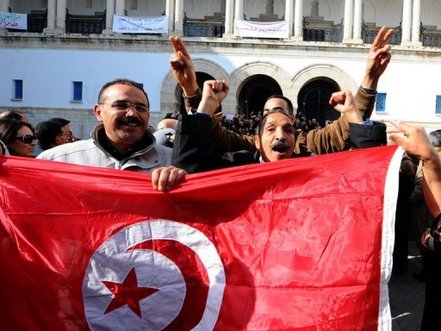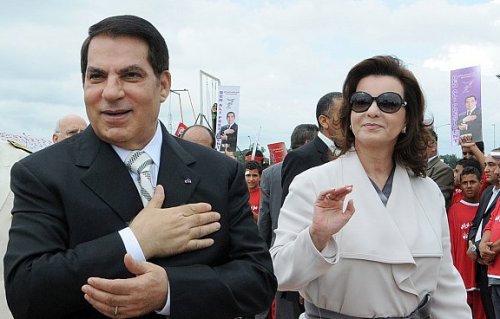Ousted Tunisian president Zine el Abidine Ben Ali is sentenced in absentia to face drugs and weapon charges.
 Ousted Tunisian president Zine el Abidine Ben Ali is sentenced in absentia for the second time Monday to face drugs and weapon charges which his lawyers have described as "irrational".
Ousted Tunisian president Zine el Abidine Ben Ali is sentenced in absentia for the second time Monday to face drugs and weapon charges which his lawyers have described as "irrational".
Ben Ali and his wife Leila Trabelsi fled to Saudi Arabia following January's popular uprising. They have already been sentenced in absentia to 35 years in prison for misappropriating public funds after large sums of cash and jewelry were discovered in their palace.
The trial had been scheduled to take place last week but was postponed due to a judges' strike.
Ben Ali alone is accused of harboring drugs and weapons at his palace in the Carthage neighborhood north of Tunisia. He also faces a drug trafficking charge.
His attorneys have argued that they need more time for his defense.
"We won't be pushed around. We will duly defend our client," said defense lawyer Bachir Mahfoudhi.
He said that he has a list of witnesses that should be able to prove Ben Ali "never owned or kept drugs."
| Ben Ali and Wife. |
"How can we imagine that a president holding power can have two kilogram’s of cannabis resin of mediocre quality (with intentions) of selling it," he said, describing the charges as "irrational."
Both the Algerian President Abdelaziz Bouteflika and the Saudi Interior Minister Prince Nayef Ben Abdel Aziz gave Ben Ali weapons, according to Beji.
And Ben Ali has dismissed as a setup the discovery of about two kilograms of drugs in his office after his departure.
The former ruler and his wife have been living in exile since January 14, with Riyadh ignoring, at least publicly, Tunisian demands for their extradition.
Ben Ali denounced his June 20 conviction as a "parody of justice" and "political liquidation," in a statement issued after the trial.
In addition to Monday's hearing, he and his entourage face possible legal proceedings in no less than 182 other cases.
In one, a military court is expected to consider charges relating to the 300 people killed during the uprising.
They also face trial on charges of torture, money laundering and trafficking of archaeological artifacts.

